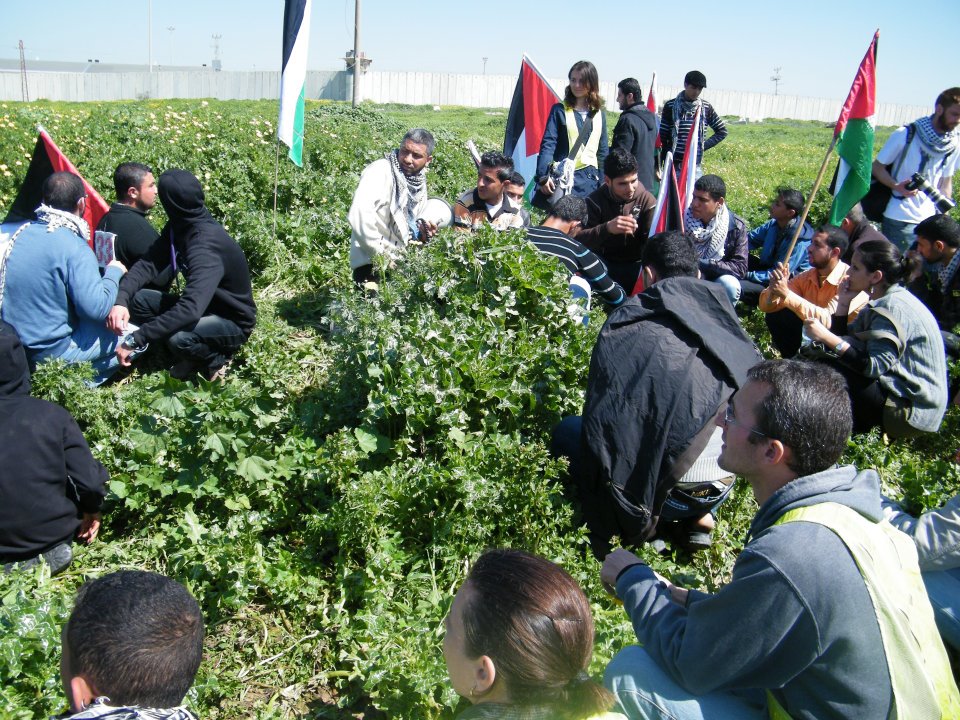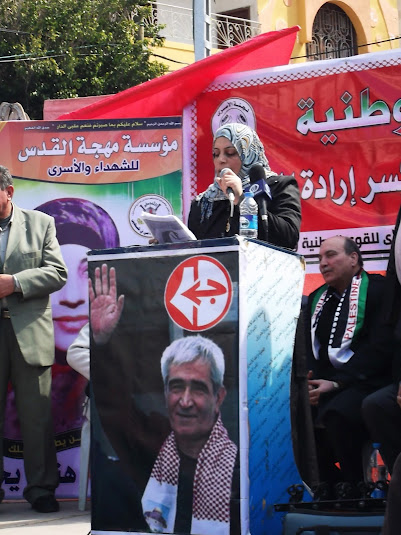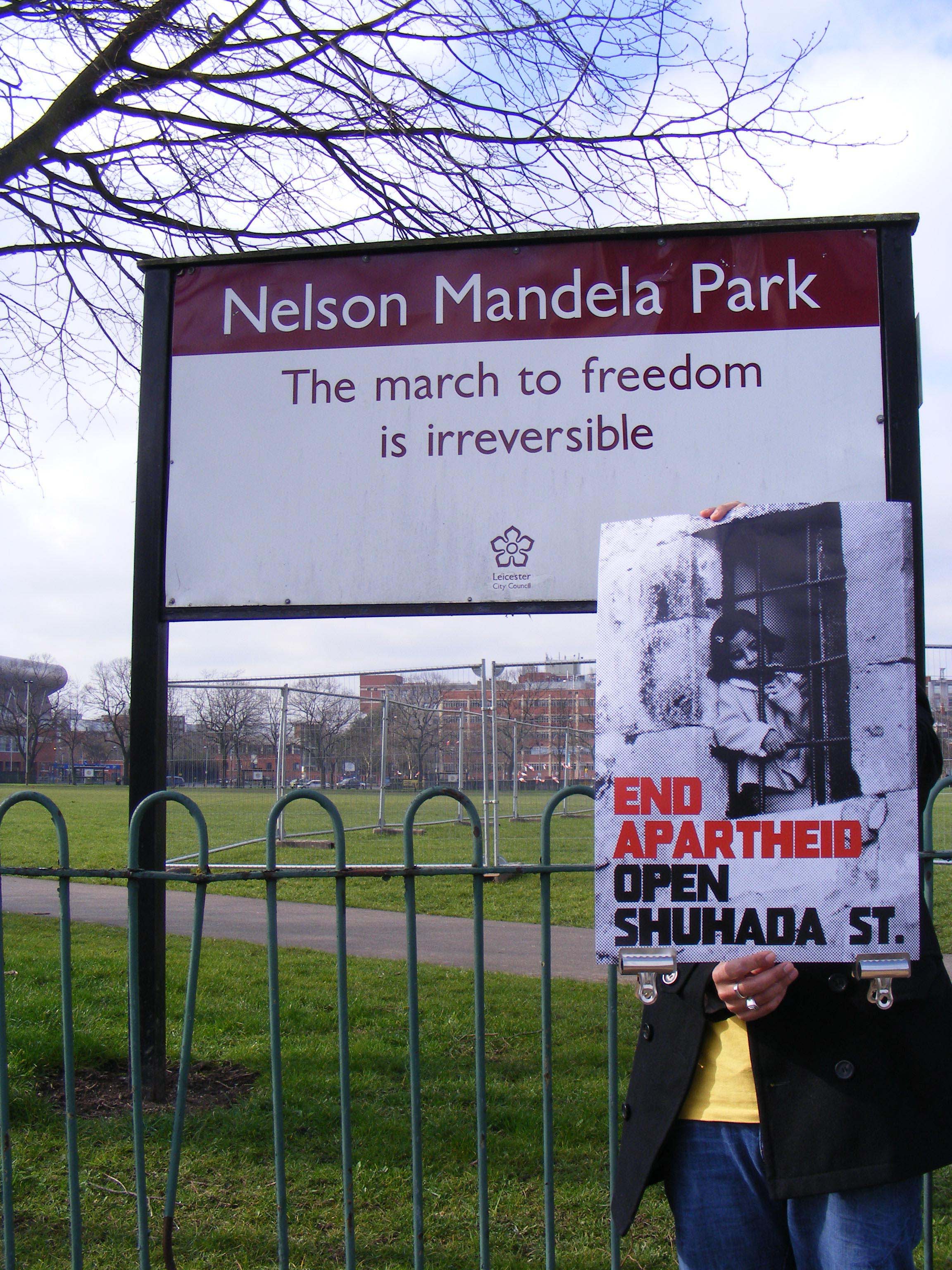-
The seen and unseen in the No Go Zone
by Nathan Stuckey 7 March 2012 | International Solidarity Movement, Gaza Today, like ever Tuesday, we marched into the no go zone north of Beit Hanoun. We gathered by the half destroyed Beit Hanoun Agricultural College and marched north, towards Jerusalem. A Jerusalem that few of the protesters have ever seen, they have never been […]
-
Red flags over Gaza: Palestinian leftists rally for Hana Shalabi
by Joe Catron 5 March 2012 | Mondoweiss Hundreds of Palestinians, mainly from the Popular Front for the Liberation of Palestine (PFLP), the Palestinian People’s Party (PPP), the Democratic Front for the Liberation of Palestine (DFLP), and other leftist factions, rallied for administrative detainee Hana Shalabi, now on her 19th day of an open hunger […]
-
International Solidarity: Photos for the liberation of Shuhada Street
5 March 2012 | International Solidarity Movement On February 20th, International Solidarity Movement put out a call for the international community to express their solidarity with the people of Al Khalil (Hebron) and the cause to open Shuhada Street. Individuals from all over the world took part in this symbolic campaign, which came just as […]
Action Alert An Nabi Saleh Apartheid Wall Arrests BDS Bethlehem Bil'in Cast Lead Demonstration Denial of Entry Ethnic Cleansing Farmers Gaza Global Actions Hebron House Demolition International law Israeli Army Jerusalem Live Ammunition Nablus Ni'lin Prisoner Ramallah Rubber-coated steel bullets Settlement Settlers Settler violence Tear-Gas Canister Video



